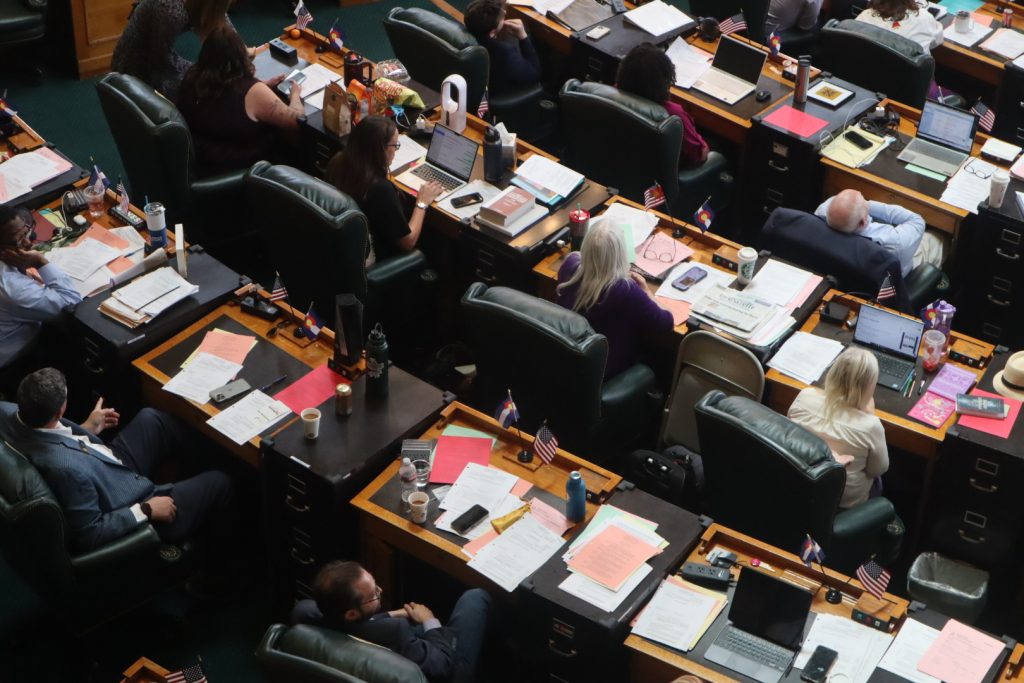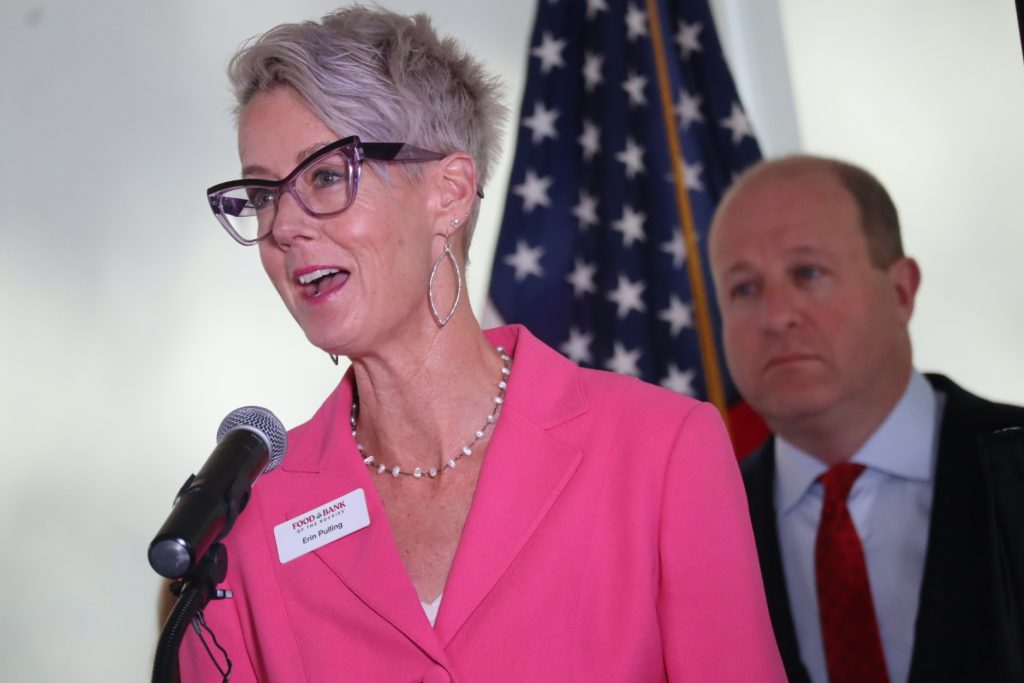Colorado lawmakers approve Polis’ $10 million funding request for food banks to help blunt impact of SNAP cutoff
Government shutdown means more than 600,000 Coloradans will go without food assistance benefits starting Nov. 1.

Robert Tann/The Aspen Times
With federal food assistance set to come to a halt on Nov. 1, Colorado lawmakers on Thursday approved $10 million in funding for food banks to help meet what is expected to be a wave of demand.
Gov. Jared Polis requested the funding last week from the Joint Budget Committee, a six-member group of lawmakers who review funding requests. He also asked for a continuation of state funding for the Special Supplemental Nutrition Program for Women, Infants, and Children, or WIC, which lawmakers also approved.
The additional funds are aimed at mitigating the expected rise in food demand from hundreds of thousands of Coloradans who rely on the Supplemental Nutrition Assistance Program, or SNAP.
Due to the federal government shutdown, funding for SNAP is set to lapse on Nov. 1, meaning recipients will not receive their monthly allotments used to purchase food at grocery stores, farmers markets and other sites. Roughly 1 in 10 Coloradans — more than 600,000 residents — use SNAP, and more than half of those are children.
Republicans and Democrats in Congress remain at odds over government funding. At the heart of the shutdown fight is a demand by Democrats to extend health insurance subsidies that are set to expire at the end of this year. Without those subsidies, health insurance plans purchased on the individual marketplace are slated to double on average in Colorado.
Republicans have refused to negotiate on the health insurance issue until after the government is reopened. Most Senate Democrats have voted more than a dozen times to kill the GOP’s government funding proposal because it does not extend the insurance subsidies.
In a statement on Thursday, Colorado Joint Budget Committee Chair Jeff Bridges, a Democratic state senator from Arapahoe County, said that “regardless of what’s happening in Washington, Colorado is stepping up to keep families fed and kids healthy.
“This is what responsible budgeting looks like,” Bridges said. “Focusing on results, not rhetoric, and doing what’s right for the people we represent. For the sake of families across our state and nation, I wish DC would act a bit more like Colorado.”
While the $10 million in state funding won’t be enough to offset the $120 million in SNAP payments Coloradans receive every month from the federal government, officials hope it can bolster food banks’ buying power.
Since food banks can buy food at scale and for a discounted price, every $1 donated usually translates to $5 or more in buying power, making the true funding impact closer to $50 million.
The state plans to allocate the funding to Feeding Colorado, the parent organization of the state’s five largest food banks, which also partners with over 1,000 hunger-relief organizations and nonprofits throughout the state.

The money will go out in $3.3 million increments every two weeks through the beginning of December. If the government shutdown continues beyond that, Polis and lawmakers may need to consider additional action.
Polis is also calling on Coloradans to donate money directly to FeedingColorado, which they can do by going to FeedingColorado.org/donate.
Polis on Thursday applauded lawmakers for approving his funding request for food banks, and also reminded families with children in school to take advantage of the state’s Healthy School Meals for All Program. The program provides free school breakfast and lunch every day to all children, regardless of income.
Colorado is also one of 25 states suing the Trump administration over its decision not to tap emergency funding to keep SNAP program payments flowing come Nov. 1.
The administration said it cannot use emergency funding for benefits in the 2026 fiscal year budget — the one Republicans and Democrats have so far failed to pass — because those benefits haven’t been renewed and “no longer exist.”
Colorado Attorney General Phil Weiser, in a statement announcing the lawsuit on Tuesday, argued the federal government is required to make SNAP payments to those who qualify for the program.










